The mid-term online strategy of the Jewish Museum Berlin
At the moment, the conference “we are museums” is taking place in the rooms of our Academy. I have been working for days on my keynote lecture in which I take stock of recent developments at our museum. It is almost two years to the day since my colleagues and I first sat down together to discuss the web presence then in place and the cornerstones of its renewal. For while our online activities had been steadily expanding and diversifying, external assessment and target group evaluation revealed that visitors were finding it increasingly difficult to navigate our website. So it was evidently high time to plan and deliver a re-launch. But what inherent value does a museum website have given the growing importance of portals such as the German Digital Library, Europeana or the Berlin Museums’ Portal on the one hand and of the Wikimedia universe on the other? And what is the right balance between social media activity and evergreen content online? These and other questions made clear that it was time to completely re-think our previous and forthcoming projects, our planning and our habits – and to reach agreement on a new online strategy.
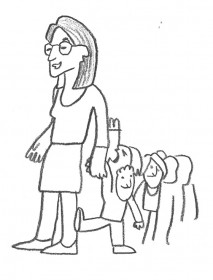
Illustration of the persona “teacher” (Lisa Schulz, 35 years old, with her school class) that was created in a workshop with museum colleagues © Johannes Plagemann
Following an exhaustive SWOT (Strengths, Weaknesses, Opportunities and Threats) analysis of the existing website, I went in search of tools and publications that would help us define and refine strategic development. Not only relevant blogs proved helpful – for instance, the Digital Media Section of the V&A blog, or Seb Chan’s “Fresh and New(er)”, but also the annual Museum Horizon Report published by the New Media Consortium and the Digital Engagement Framework launched by Jasper Visser and Jim Richardson. I also consulted Harald Krämer, who is meanwhile a Professor at the School of Creative Media at the City University of Hong Kong; and I contacted some colleagues at other museums, such as John Stack (now Digital Director at the Science Museums Computer Group) whose publications I had long since found of interest (in the latter case http://www.thestacker.net/). Last, but not least, I talked with numerous colleagues here, in order to better understand the capacities of our Museum and to draw up an overview of personnel resources and operating costs. It took about three months to sketch out the cornerstones of the future online strategy and a few months more for me to complement the draft proposal by adding details of project planning and schedules.
The online strategy of the Jewish Museum Berlin is based on an online mission statement that transfers the Museum’s general objectives to its future online platform. The three cornerstones of this are:
To be a forum that fosters participation
In order to meet this goal, we asked the Social Media Think Unit at the TU Berlin to evaluate our previous social media activities. Based on their recommendations we reconsidered our social media strategy. In November 2013 our Museum signed the Berlin Declaration on Open Access to Knowledge in the Sciences and Humanities and approved the accompanying Best Practice guideline. In order to strengthen the open access policy and to facilitate the re-use of our existing content, we occupied ourselves intently over the last few months with the Creative Commons license model. Of pivotal importance thereby was to clarify which content we can make available to the public as open data and which standardization is necessary in order to do so.
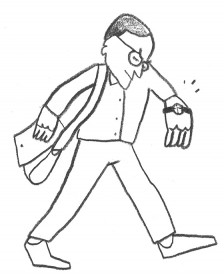
Illustration of the persona “journalist” (Max, 40 years old, on his way to the editorial conference) that was created in a workshop with museum colleagues © Johannes Plagemann
To be a hub for online research
Information about German-Jewish history as well as the histories that our Museum relates in its exhibitions had not hitherto been available on our website. This is about to change. Targeted related content links will allow us to now integrate in our website content produced by parties other than ourselves as well as the reverse, namely to feed our own content, in particular the digitalized parts of our collection, into other portals such as Wikimedia Commons and the German Digital Library. In order to heighten the visibility of scientific activities underway at the Museum we have also introduced various open access publication formats: a scientific series, online publications and audiovisual excerpts from outstanding lectures. Further formats will be added as and when appropriate.
To be a center of competence for the dissemination of Jewish history and culture
The focus of our previous online activities consisted in enhancing our special exhibitions both by developing our own projects (exhibition trailers, special websites, blog series, web comics and the like) and by drawing on the Museum’s own collections to stage online exhibitions. We wish to continue doing so and to complement this work by adding more service-oriented content such as FAQs and by striving for greater transparency regarding the skills and responsibilities of Museum personnel.
Process of implementation
In summer 2013 our management approved the mid-term online strategy based on these three cornerstones. In the meantime, diverse workshops have been held with colleagues from all departments of the museum, in which we:
- Exchanged our wishes and ideas regarding the future website
- Discussed our social media strategy
- Drafted personas, in order to develop the most concrete and – above and beyond the bounds of each department – most binding idea of those whom we hope to reach through our online programs
- Took part in a camera training workshop led by Susanna Jans
- Discussed Creative Commons with Barbara Fischer (Curator for Cultural Partnerships, Wikimedia) and Ellen Euler (Deputy Managing Director of the German Digital Library)
In addition, we have recently:
- Taken part in the Kulturhackathon {Cod1ng da V1nc1} (and this year’s award ceremony will again take place in our museum on 5 July)
- Signed a cooperation treaty with the Google Cultural Institute which will culminate shortly in new online exhibitions
- Conceived a comprehensive portal on the topography of Jewish life, on which I will report in more detail some other time.
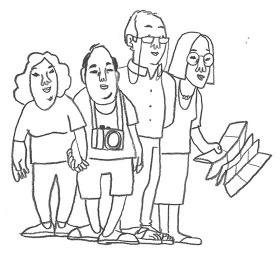
Illustration of the persona “onsite visitors” (family Koden and Levy from Haifa, about 50 years old, on their way to the museum) that was created in a workshop with museum colleagues © Johannes Plagemann
Last, but not least, we have been working for the past five months with the agencies 3pc and reinblau on the most broad-ranging pivotal project of the new online strategy: the re-launch of our website. As ever, we are called upon, here too, to take on new challenges, such as:
- To combine agile project management with the realities of the public sector
- To develop a modular information architecture for our diverse content
- To reach agreement on design matters, beyond questions of personal taste
- To install a new form of CMS and gain competence in using it.
The results of this prolonged and on-going process – and this is what is so great about an online strategy – will all be visible in the coming months and years. I dare say you have good reason to be curious.
This article was written by @MirjamWenzel, Media, in happy anticipation of @wearemuseums
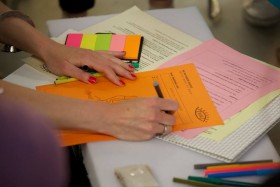
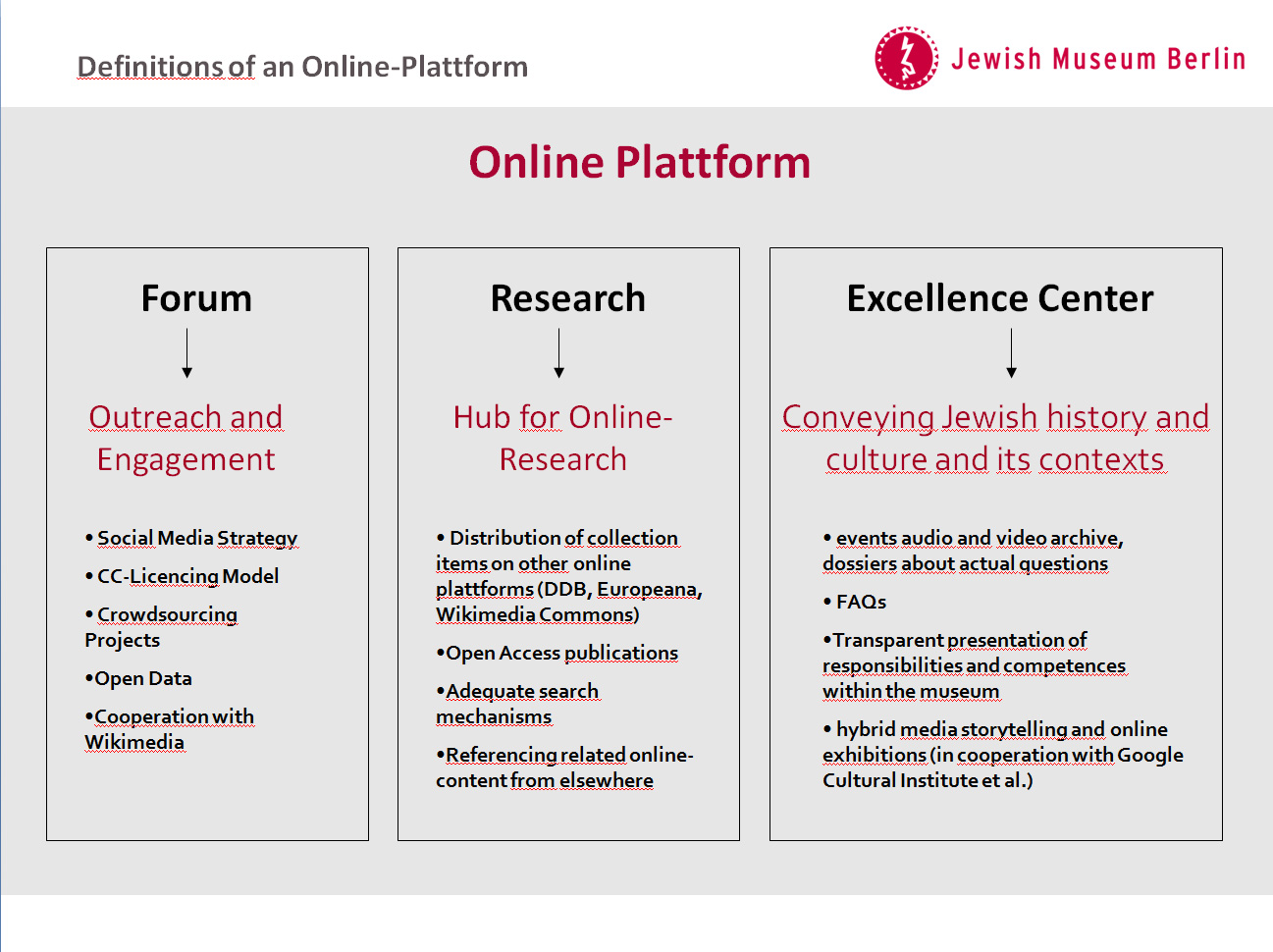
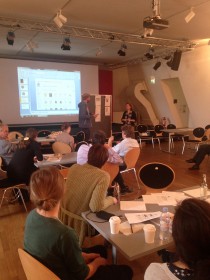
My presentation on the digital transformation process at the Jewish Museum Berlin is now online, too: http://bit.ly/1FZzcWC